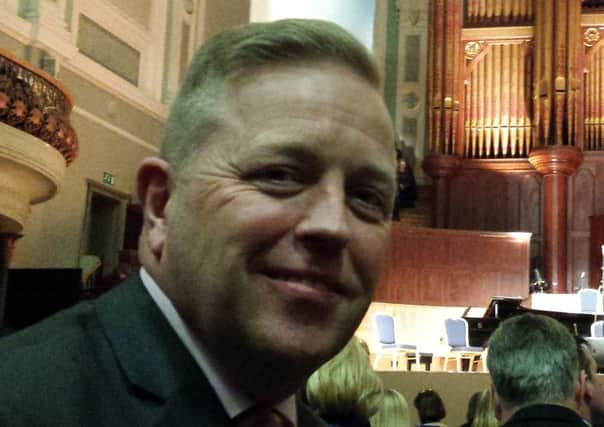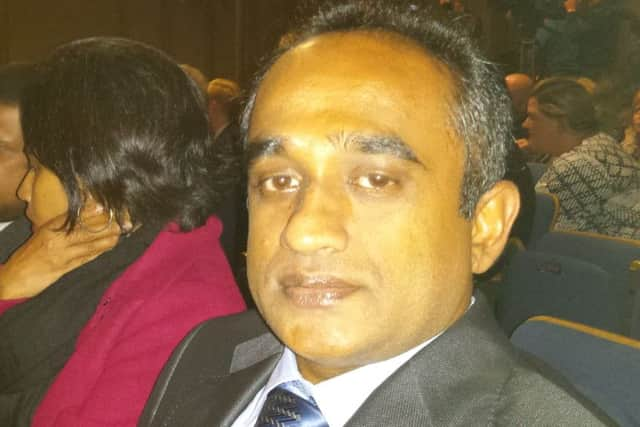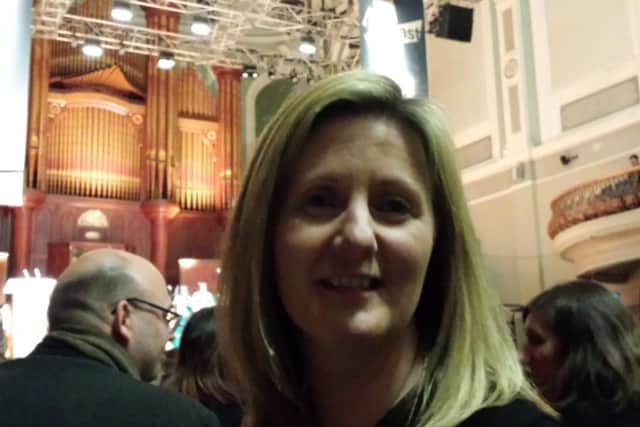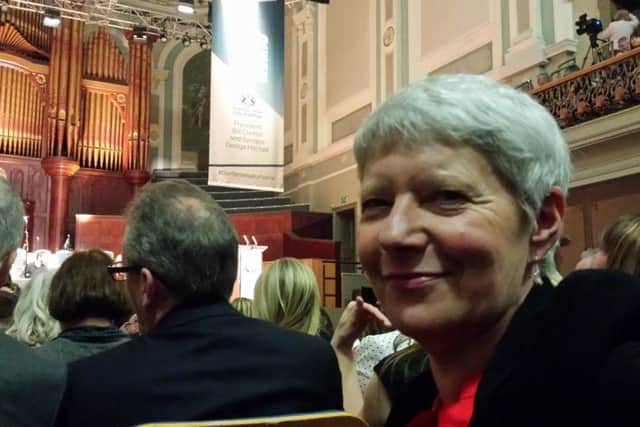Good Friday Agreement: '˜20 years on, all our politicians talk about is gaelic road signs'


One of those present, a former top business figure, lamented the current focus on the Irish language at the expense of bread-and-butter issues.
But one academic from the troubled south Asian island nation of Sri Lanka described the peace process as having been a “success” which his own country hopes to emulate.
Advertisement
Hide AdAdvertisement
Hide AdThe News Letter spoke to audience members at the Ulster Hall’s freedom of the city event for George Mitchell and Bill Clinton on Tuesday night, to get a flavour of the current mood.


THE BUSINESS BOSS-TURNED-METHODIST LEADER
One of those in the audience was former Belfast city centre manager Andrew Irvine, now chief executive of the Methodist East Belfast Mission, based in the Skainos centre in the loyalist Newtownards Road.
He had been invited by the lord mayor, and just before the event got under way he told the News Letter he was a “passionate supporter” of the Good Friday Agreement.
“It might not be entirely without fault,” he said.


“But I think, in the balance of the two communities in Northern Ireland, it’s a very fine agreement.
Advertisement
Hide AdAdvertisement
Hide Ad“Therefore I wanted to come along today and in some way with my presence give a thank you to president Clinton and to George Mitchell for the parts that they played.
“In a way also I suppose to hopefully be part of a group of people who are asking for our politicians to create some movement now – not to throw away all the work that led to the Good Friday Agreement, and the work of 20 years since.”
He said the 1998 agreement brought a “dividend” for the businesses of Belfast city centre, but “I’m seeing now in my current role that dividend didn’t roll out to all of the communities around Belfast”.


He highlighted the level of economically inactive people in the Ballymacarrett ward, where Skainos is based, and said: “We’ve a high proportion of our population have low or no qualifications. And yet our politicians are only concerned with gaelic street signs, and I think that’s extremely disappointing.
Advertisement
Hide AdAdvertisement
Hide Ad“My heart’s longing for a bit more of what Bill Clinton and George Mitchell managed to achieve, and to see some progress on issues that really matter for ordinary folks.”
THE SRI LANKAN ACADEMIC
Sumudu Walakuluge, who teaches political theory at the University of Ruhuna in Sri Lanka, came to Northern Ireland for the Good Friday anniversary, where he was attending a conference called ‘Peace and Beyond’.


The 39-year-old said of the 1998 deal: “We consider it as a very successful peace process, especially in terms of the reconciliation process.
“We were also suffering a bloody civil conflict in Sri Lanka. We’re also in the reconciliation stage.”
Advertisement
Hide AdAdvertisement
Hide AdWhilst there are “shortcomings” in the Northern Ireland peace process, he said “basically we believe the framework they’ve built up to resolve the problem is really good – we’re looking for some kind of a lesson from this framework”.
Asked if he views things like the early release of prisoners – one of the most contentious parts of the 1998 deal – a mistake, he said: “No, no, it’s not. It’s my personal opinion.”
He said political struggles often engulf people in “extreme” ideologies, but when you “reap the peace ... you should have some kind of mercy on them”.
He said releasing prisoners early would be acceptable “as long as they are not in the same mentality”.


THE SOCIAL RESEARCHER
Advertisement
Hide AdAdvertisement
Hide AdAlso present was Shirley Clarke, sister of composer Debra Salem who wrote music for both Tuesday’s ceremony and a ceremony in 1998 to mark the agreement.
The 57-year-old social researcher from Comber said: “I think [Tuesday’s ceremony] is nice. It’s just be nicer if there were something more concrete coming out of it.
“Twenty years later it’d be quite nice if there was something better to celebrate. We live in hope.
“I think they got people talking 20 years ago. It’d be quite nice if they could do it now.”
Advertisement
Hide AdAdvertisement
Hide AdAsked about the release of prisoners that the agreement involved, she said: “We need to think of our future generations, not the past.”
THE CHARITY CHIEF
Also present was Grainia Long, originally from Dublin and now living in south Belfast. The 39-year-old is the chief executive of the Irish Society for the Prevention of Cruelty to Children, helps run Thames Valley Housing Association, and was formerly on the Northern Ireland Human Rights Commission.
She is soon to take up a new post of “commissioner for resilience” at Belfast City Council, planning for emergency situations, in June.
She had come to study in the city just as the 1998 talks got under way and said: “It’s obviously a really important day, and a day worth marking.
Advertisement
Hide AdAdvertisement
Hide Ad“[Mitchell and Clinton] were prepared in many ways to stake their reputations on an extremely challenging set of negotiations. But they didn’t give up.
“We’d be best placed to use this opportunity to say where now are the next milestones? I still believe speaking to everyone I have in the last few days, there’s a strong sense of pragmatic optimism.”